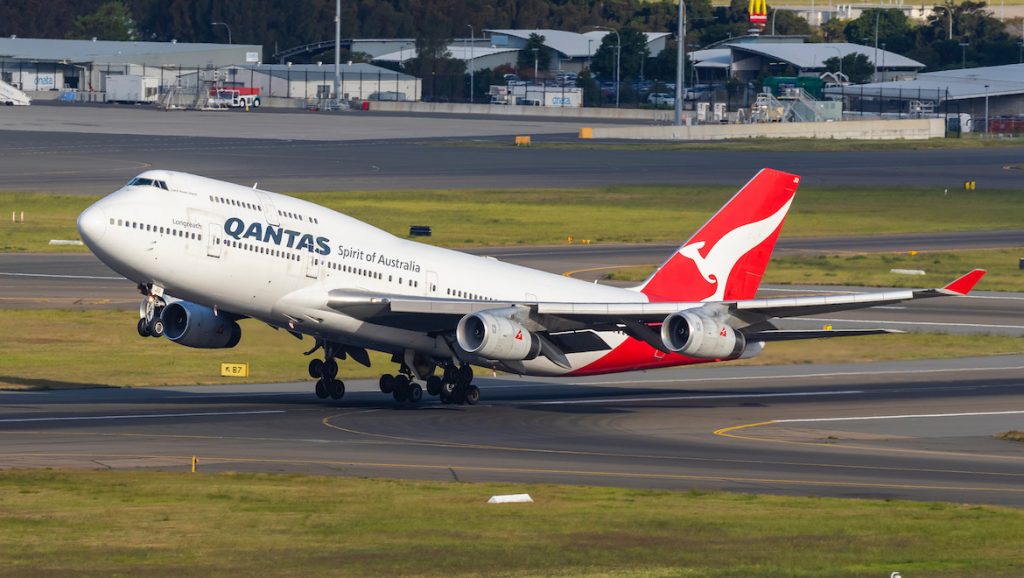The COVID-19 travel bans have given the aviation industry the chance to reflect on their vulnerability in the face of an unseen enemy. The battle between big profits and human wellbeing is on, writes retired Cathay Pacific first officer Garry C. Mitchell.
The world is currently in the grip of the COVID-19 pandemic: quarantine and widespread lockdowns have swept the globe, leading us into a state of powerlessness and contemplation as this virus ravages our healthcare systems and economies.
Many sectors have already been hit hard, but the aviation industry has taken a critical blow as nations shut their borders, leaving fleets of aircraft grounded at airports from Adelaide to Anchorage. One could argue that if it weren’t for the aviation industry, the crippling coronavirus may never have happened.
Having started in the Chinese city of Wuhan in late 2019, the virus spread throughout the world with lightning speed via the international airline industry before mitigating measures could be put in place; or did it?
Was it the airlines, assisted by a plethora of cruise ships, facilitating the pandemic? Or was it simply we humans?
There have been rogue viruses aplenty over recent generations and no doubt there will be more to come. Memories are short and despite living longer than our ancestors we have much faster lives. There seems to be an indecent urgency to mature quickly, accumulate rapidly and succeed fast.
More than half a century ago, I remember a world where the governing bodies represented the population, or most of them, as civilisation settled into an organised and inevitable progression with fiscal policies providing the lubricant to make the whole process function with a modicum of order.
Today, the human population has become the resource, corporations the governance and shareholder profit the holy grail. Corporations operate to a “just in time” program ensuring maximum efficiency and profit with no provision for the unexpected. The proven efficiency is such that we take it for granted and display outrage when it falters.
In aviation circles, complacency is an old chestnut often rolled out when things go wrong, or someone messes up.
The days when aircrew ventured off to work with eager anticipation and a dollop of trepidation are long gone. Our trepidation was driven by an expectation of what might go wrong because back then, it often did. As a consequence, we planned for the unexpected.
It’s little wonder that otherwise normal human beings who took heavier-than-air machines into a hostile environment and transported them long distances to far-flung destinations were considered heroes.

To be a pilot was to be revered by all and sundry. To succeed required a serious commitment, a depth of knowledge, many hours of trial and error, listening to even greater heroes and, most of all, to expect the unexpected.
The enemy (always) was and is complacency. Be complacent for too long and a rude awakening is sure to follow. We have already seen this in a string of needless aviation disasters: What did we learn from AF447?
What are we learning from the 737 MAX? These failings will undoubtedly continue unless a change of priorities is made at the highest level. As governments frantically step-up their efforts to ‘flatten the curve’ of the coronavirus, commercial airlines should be using their time just as wisely to consider what a safe and sustainable aviation industry looks like beyond 2020.
This virus will pass, we will pick up the pieces and move on. That is for certain. The world has a long history of recovery and regeneration. But like other crises we’ve experienced over the years, the world will be forever changed.
Can the aviation industry meet the challenge of not only providing the safest mode of travel ever created but to do so without succumbing to corporate greed and egotistical competition?
Perhaps now, as we sit in our homes, self-imprisoned by the coronavirus, we have all been given an opportunity to reflect on what is most critical. It is time to get our house in order.
For the aviation industry, that will hopefully include a timely overhaul of safety procedures and sustainable practice. But given the balance sheets of some of the sector’s largest carriers, risk management may inevitably be pushed aside once more in the pursuit of money. This time around it’s not shareholder returns that are driving the hunger for cash. It’s pure animalistic survival.
Garry C. Mitchell is a retired First Officer for Cathay Pacific and Captain for Air Zimbabwe. His 45-year commercial aviation career includes bush flying in Africa and flying Boeing 747s for Qantas. He is a seaplane enthusiast and was the former owner and director of Seaplane Safaris, now part of the Sydney Seaplanes group of companies.

















Bill O'Really
says:k